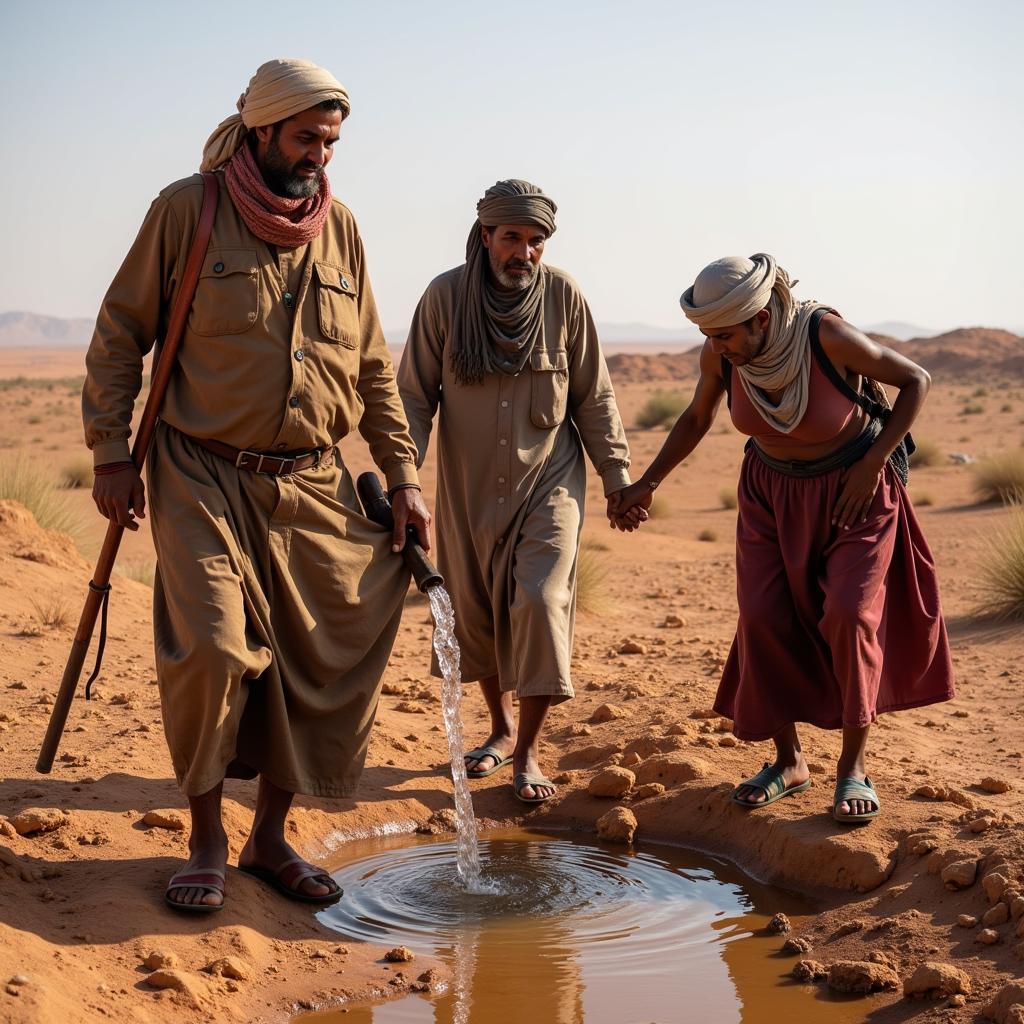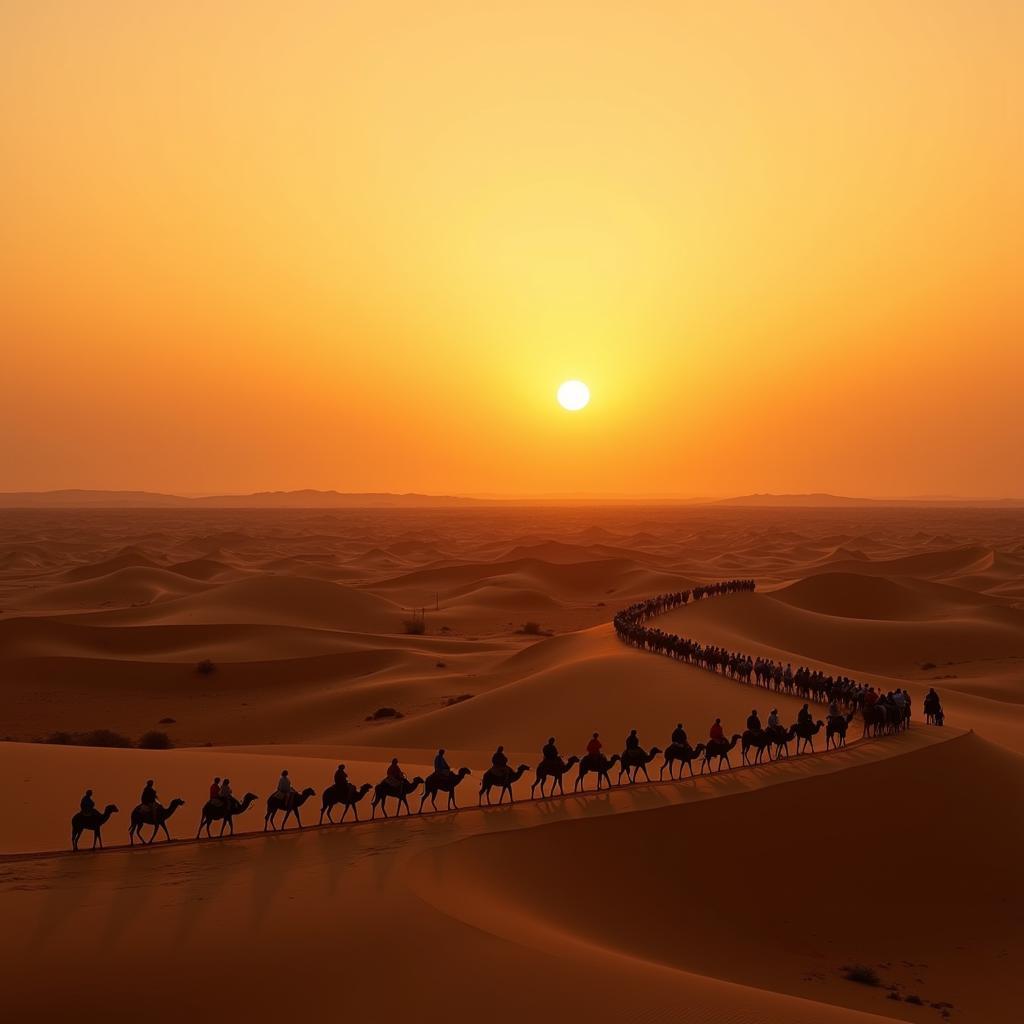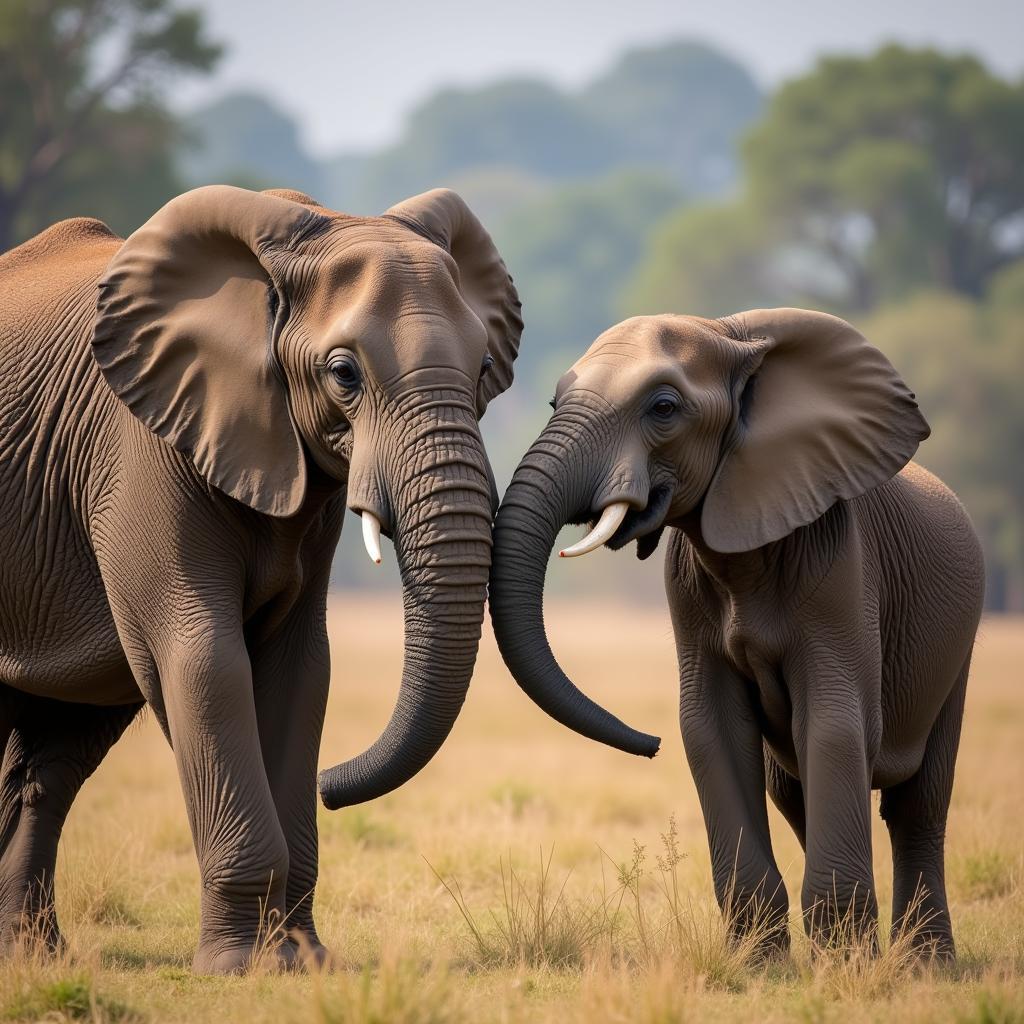Living on the Edge: Uncovering the Lives of African Desert People
The vast, unforgiving landscapes of Africa’s deserts are home to some of the most resilient and resourceful people on Earth: the African Desert People. These communities, scattered across the Sahara, Kalahari, and Namib deserts, have not only adapted to but thrived in some of the harshest conditions imaginable. Their lives offer a glimpse into a world shaped by scarcity, resilience, and a deep connection to their environment.
Adapting to Extremes: The Challenges Faced by African Desert People
Life in the desert presents a unique set of challenges.  African desert nomads collecting scarce water Extreme temperatures, limited water sources, and sparse vegetation are just a few hurdles faced daily. Let’s delve deeper into these challenges:
African desert nomads collecting scarce water Extreme temperatures, limited water sources, and sparse vegetation are just a few hurdles faced daily. Let’s delve deeper into these challenges:
- Water Scarcity: Access to water is paramount. African desert people have developed ingenious methods for finding and conserving water. From digging wells to collecting morning dew, their survival depends on understanding the nuances of their environment.
- Extreme Temperatures: Scorching days and frigid nights demand adaptability. Traditional clothing and shelters are designed to regulate body temperature. For instance, loose-fitting, light-colored clothing reflects sunlight and promotes air circulation.
- Food Security: With limited vegetation, finding sustenance requires ingenuity. African desert people have learned to utilize every available resource, often relying on a nomadic lifestyle to follow seasonal grazing patterns for their livestock and gather edible plants.
Diverse Cultures, Shared Resilience: The Rich Tapestry of African Desert Life
Despite the shared challenges, the African desert people represent a rich tapestry of cultures, each with unique traditions and ways of life.
The Nomadic Way: Following the Rhythms of the Desert
Many desert communities, like the Tuareg of the Sahara and the Himba of Namibia, are traditionally nomadic. Their lives revolve around finding water and grazing land for their animals, their movements dictated by the ever-changing desert conditions. These nomadic journeys, often spanning hundreds of miles, are a testament to their resilience and intimate knowledge of the desert’s subtle cues.  A nomadic tribe migrating across the African desert
A nomadic tribe migrating across the African desert
The Importance of Community: Strength in Unity
In the face of adversity, community becomes paramount. Desert societies are known for their strong social structures, where cooperation and sharing are essential for survival. “In the desert, one learns the true meaning of interdependence,” notes Dr. Fatima Ali, an anthropologist specializing in Saharan cultures. “Every member of the community plays a vital role, their knowledge and skills interwoven into the fabric of their collective existence.”
Cultural Treasures: Art, Music, and Storytelling in the Desert
The harsh realities of desert life have fostered a deep appreciation for art, music, and storytelling.
- Musical Traditions: Music plays a vital role, serving as a form of entertainment, communication, and passing down traditions. The haunting melodies of the Tuareg’s Imzad (a single-stringed fiddle) and the rhythmic drumming and chanting of the San people’s trance dances are powerful expressions of their cultural identity.
- Oral Histories: Storytelling thrives as a way to transmit knowledge, history, and moral values across generations. Folktales often revolve around desert animals, ancestral spirits, and the importance of respecting the delicate balance of nature.
Looking Forward: The Future of African Desert People
Today, the African desert people face new challenges brought about by climate change, modernization, and globalization. The increasing frequency of droughts, coupled with the pressures of development, threaten their traditional ways of life. However, their deep resilience and adaptability continue to inspire. As we strive for a more sustainable future, the wisdom and knowledge of the African desert people, honed over centuries of living in harmony with nature, hold valuable lessons for us all.
Conclusion
The African desert people are a testament to the resilience of the human spirit. Their ability to adapt to some of the harshest environments on Earth, their rich cultural heritage, and their deep connection to their environment offer a unique perspective on human existence. As we grapple with the challenges of a changing world, understanding and appreciating the lives of these remarkable communities can provide valuable insights into sustainable living and the importance of cultural preservation.


